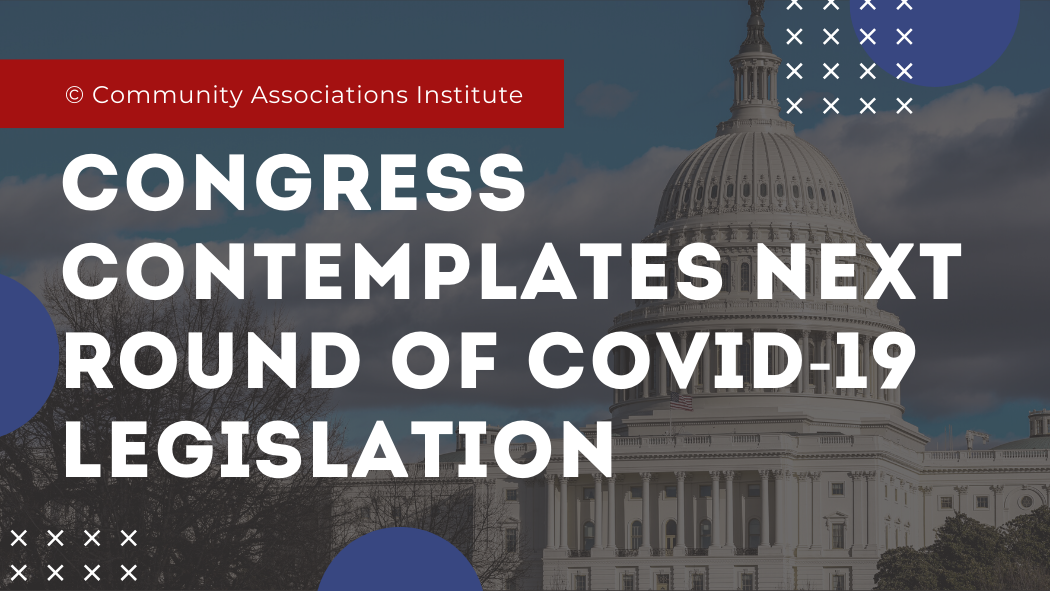The U.S. economy came to a screeching halt because of the national emergency and shelter-in-place or stay-at-home orders issued around the country in mid-March due to the COVID-19 pandemic. As a result, a small group of Congressional leadership started negotiating the next round of COVID-19 emergency legislation to help Americans, small businesses, and others during this crisis.
However, all the members of the U.S. House of Representatives and the Senate want to legislate and be part of the conversation, deliberations, and negotiations to represent their constituents. As Congress negotiates the next round of legislation, there are two policy issues impacting CAI members.
Expanding Financial Support for Community Associations and Owners
Between March 16 and May 6, 33 million Americans filed an initial claim for unemployment. Economists predict more than 22 million jobs were lost in April and the national unemployment rate will exceed 16%, reaching a high of 20%, according to the Wall Street Journal.
Community associations house nearly 74 million Americans that make up an estimated 25% of the U.S. population, according to the 2019 National and State Statistical Review for Community Association Data published by the Foundation for Community Association Research. Many residents who live in a homeowners association, condominium community, or housing cooperative have lost their jobs or have reduced income due to COVID-19.
CAI is asking Congress to include two provisions that will help community associations and homeowners survive this economic crisis.
Access to Paycheck Protection Program and Economic Injury Disaster Loans
Demand for Economic Injury Disaster Loans is so high that the Small Business Administration (SBA) is no longer accepting applications. CAI is calling on Congress to increase the SBA’s resources and to make community associations eligible to receive Paycheck Protection Program loans so that access to emergency funding will be available when needed.
Housing Assistance Fund
CAI is asking Congress to establish a Housing Assistance Fund that state governments can use to help homeowners avoid foreclosure. A similar fund was established during the financial crisis of the early 2010s and helped homeowners pay past due assessments. Urge your member of Congress to provide additional financial support to community associations that may be impacted by the financial crisis by clicking here.
Opposing Nationwide Debt Collection Moratorium
The House of Representatives is considering legislation that imposes a national moratorium on debt collection. The proposal summary includes the following:
- Prohibits debt collection activities while President Donald Trump’s COVID-19 national emergency declaration is in effect (an alternate extends the moratorium 120 days beyond the declaration).
- Expands the definition of “debt collector” to include creditors like community associations.
- Civil liability for violations, with violators liable to a debtor for up to 10 times the amount of damages per violation.
This legislation is too broad and will harm the financial interests of homeowners associations, condominium communities, and housing cooperatives. When a homeowner is unable to pay assessments, these costs are passed to other homeowners in the community, spreading financial distress to other households.
CAI encourages community associations to work with homeowners facing financial hardship from the economic impact of COVID-19 by creating payment plans and limiting late fees.
Contact your congressional representative to oppose a national debt collection moratorium by clicking here.
If you have any questions regarding CAI’s goals for the next round of COVID-19 legislation, please do not hesitate to reach out to CAI’s Government and Public Affairs team at government@caionline.org or 888-224-4321. For more COVID-19 resources for community associations, visit www.caionline.org/Coronavirus.aspx



